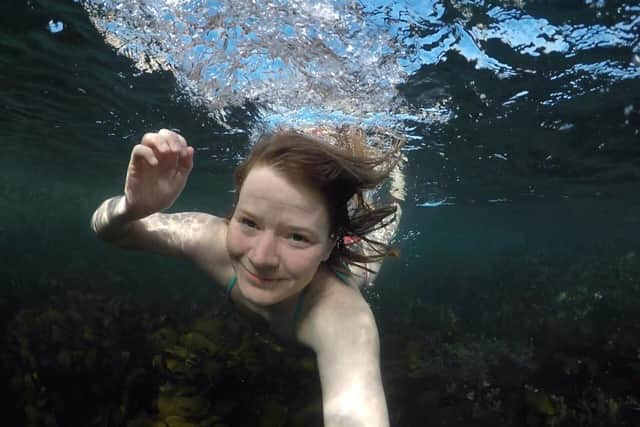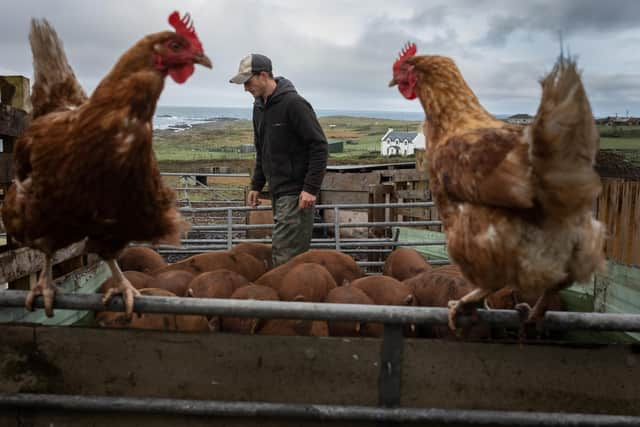How photography is helping one Scottish island emerge from lockdown
The people of Colonsay in the Inner Hebrides, which is is home to around 130 people, have shared an insight into everyday life on the island through a project as it emerges from Covid.
Photo collective Document Scotland arrived on the island in early May for Show Us Colonsay, with professional photographers working alongside residents to capture island life and produce work for an exhibition in the village hall.
Advertisement
Hide AdAdvertisement
Hide AdIslander Jen MacNeill, 39, who runs Colonsay Bikes and Boards, said the project helped islanders connect again following the pandemic while encouraging them to document life beyond the picture postcard image of their home.
For the project, which was funded by Creative Scotland, Jen drew on the daily sea swims which have allowed her to deeply connect with her environment after being diagnosed with bi-polar during the pandemic.
She said: “The diagnosis was shocking... but the swims are such a lovely part of the day. I wasn’t particularly keen on accepting the diagnosis but the swimming meant I wasn’t stuck in the house surrounded by my thoughts, I was able to be out thinking things through.”
With her smartphone, which is sometimes fitted with a waterproof case, Jen enters the water at the same spot every day.
She added: “I just love the way the water is different every time. It never, ever looks the same. When I get stuck in my head, I go to my spot and see how everything changes. I got really interested in taking photographs and capturing this.”


The collective element of the project was also curative, particularly after the additional solitude presented by the pandemic.
Jen said: “It was just really lovely to do things with other people, rather than individually. Seeing other people’s work also made me realise the innovation and diversity of what people are doing here. That is something to be really proud of.
“The project has also made it more apparent how important it is to capture people and place now, for the future.”
Advertisement
Hide AdAdvertisement
Hide AdJan Binnie, who has lived on the island for 12 years, has retired from her professional life and taken on a croft. Her photos were taken over lambing season, with the camera allowing her to pause and take in special moments, such as when the ewes bond with their young for the first time.


"Having the camera reopened my eyes, it reawakened something,” she added.
The arrival of Show us Colonsay on the island was a welcome one following lockdown, Jan added.
“I went to the first meeting as it was something where we were allowed to get together. It felt like a celebration of being able to socialise again. After the exhibition there was a buzz in the room and we started to think about what we could do next.”
Colin McPherson, founder member of Document Scotland, said: “We wanted to sow the seeds of what photography can do in terms of creating a narrative around their life and to get the island thinking about how they would like Colonsay to be viewed by a wider audience. It was a massive success.”
Comments
Want to join the conversation? Please or to comment on this article.